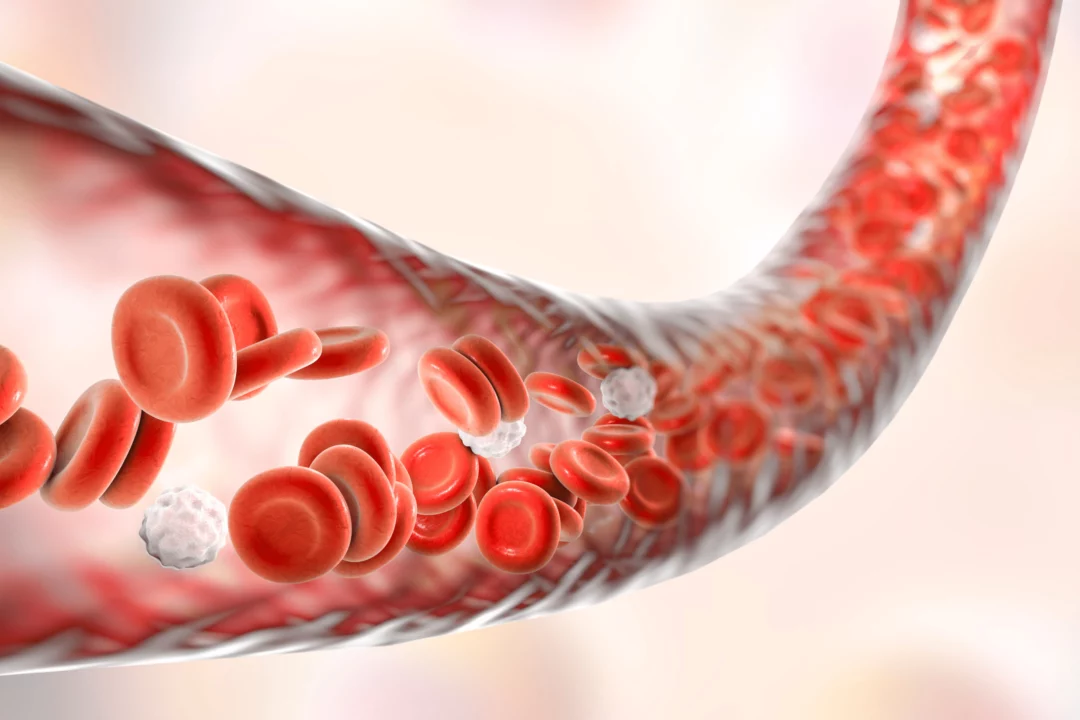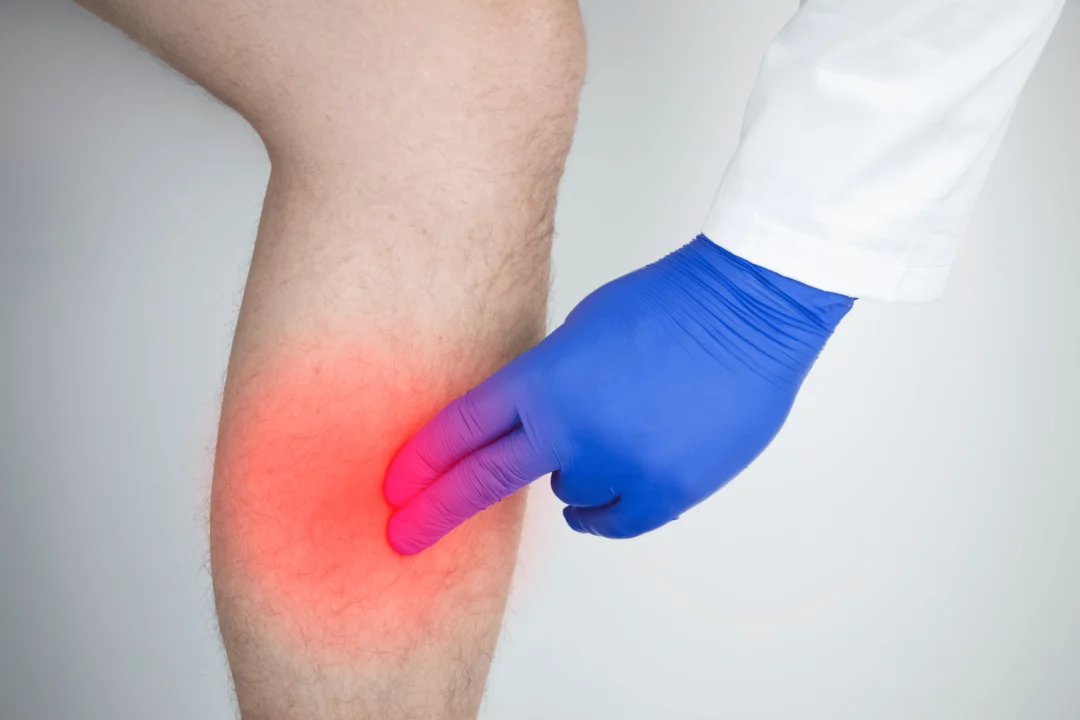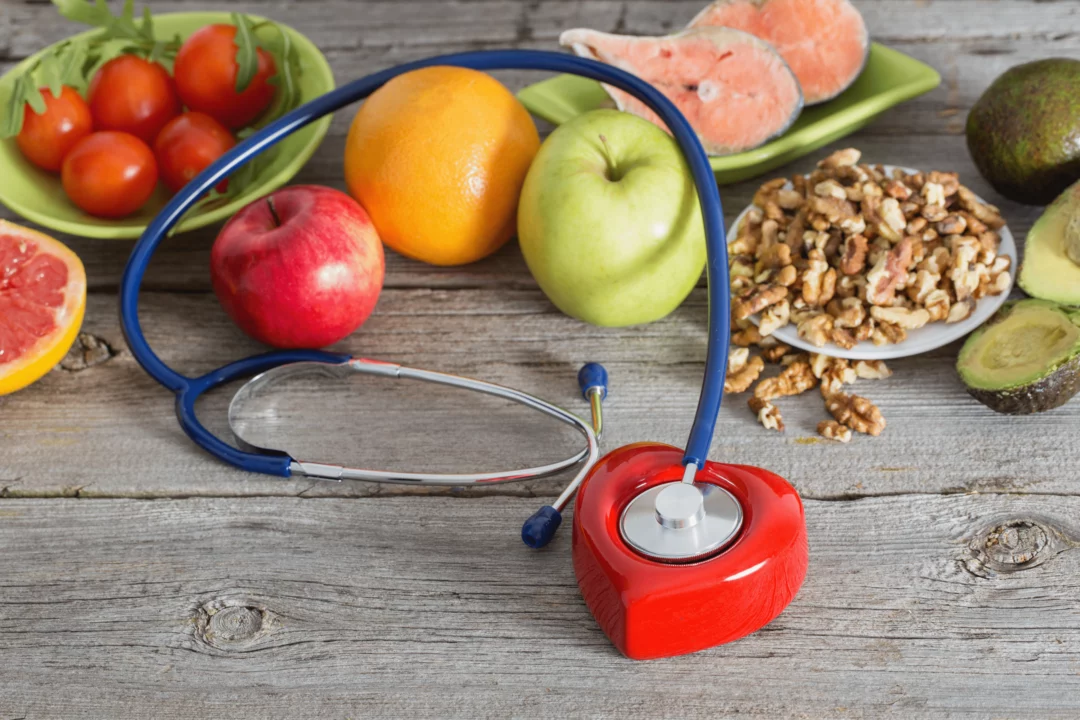
We only have one heart, so it is extremely important to keep it healthy. But it is also important to take care of your blood vessels and keep them clean. What are the risks if we do not take proper care of our heart and blood vessels? So how can we take care of them properly to avoid health risks and complications?
A blood clot can form if something prevents blood flow in veins and arteries. The clot can then block the blood vessels, leading to thrombosis, or completely block a vein or artery and cause a stroke or heart attack.
 Thrombosis is not always easy to recognize right away, as symptoms appear slowly and we can easily confuse them with other diseases.
Thrombosis is not always easy to recognize right away, as symptoms appear slowly and we can easily confuse them with other diseases.
You should therefore pay attention if you notice a slowly developing pain in one place exertion-induced, increased fatigue, unexplained cough or stuffiness during greater physical exertion. If suddenly it appears breathing problems or chest pressure, you should not hesitate to call for help even for a moment, nor in the case of a strong chest or head pain, problems with by seeing, speaking and moving, but not even with a sudden onset swelling, pain and changes in temperature and color of one limb, especially the calves.
Treatment includes anticoagulant medications and bed rest, but in some cases, the patient cannot avoid surgery.
It is best to avoid risk factors. Risk factors leading to thrombosis include:
While we cannot influence some factors, such as heredity, others we can. Again, the basis is healthier lifestyleThanks to it, many risk factors do not affect us, but we can also partially influence, for example, the hereditary predisposition.
Therefore, keep healthy body weight, take care blood pressure, regularly move and follow drinking regimen. And with alcohol, as they say – in moderation :-). If you have a long trip ahead of you, get some compression knee socks and every two hours a little stretch.
 If we want to benefit our blood vessels and heart, we should avoid consuming animal fats, especially sausages, fatty meats, fatty dairy products, and fine pastries.
If we want to benefit our blood vessels and heart, we should avoid consuming animal fats, especially sausages, fatty meats, fatty dairy products, and fine pastries.
So, it's better to use it in the kitchen. high-quality vegetable oil, you can choose olive, rice or rapeseed oil. The same applies to everything: it pays to read labels and look at the composition, especially vegetable fat. Butter is not forbidden, just consume it in moderation. Buy better quality and alternate it with vegetable fats. Consume enough vegetables, such as carrots or chard, and fruit, such as oranges, cherries and blueberries. Also suitable are fresh herbs, especially rosemary, thyme, oregano and sage. Let's not forget about black beans, tofu, nuts, almond, la seed, oats. It is also important fish consumption, especially salmon and tuna, for content omega-3 fatty acids acids.
 Waist-to-hip ratio, abbreviated WHR (from English waist-hip ratio) shows the distribution of fat in your body and is used for measurement and indication of health status and risks development of serious health complications. It is calculated simply.
Waist-to-hip ratio, abbreviated WHR (from English waist-hip ratio) shows the distribution of fat in your body and is used for measurement and indication of health status and risks development of serious health complications. It is calculated simply.
Help tailor's meter measure yourself waist circumference at the thinnest point of the abdomen (or 1 inch above the navel) and hip circumference at their widest point. Subsequently, according to simple formula calculate your WHR: waist circumference (in cm) / hip circumference (in cm)
So, for example, if you have a waist circumference of 72 cm and a hip circumference of 90 cm, your WHR is 0.8 (72 : 90 = 0.8).
When should we be careful?
| Woman | Man | |
| Normal WHR | < 0.80 | < 0.90 |
| Risky WHR | 0.80–0.84 | 0.90–0.99 |
| Very risky WHR | > 0.85 | > 1.00 |
The table clearly shows when our WHR is at risk and we should consider a preventive visit to the doctor, and when is it really very risky as examination we would they shouldn't have hesitated.
You can again avoid these results by using healthier lifestyle and choosing the right foods. You can also support your body in the form of suitable dietary supplements.